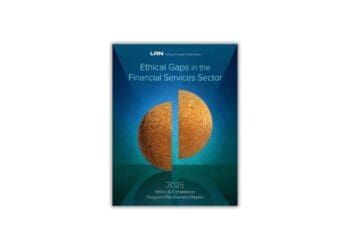Enforcing Civility Rules in Light of Federal Roadblocks: Employers vs. the NLRB
While most employers establish policies to promote a civil workplace, the NLRB has instituted new roadblocks, declaring that many of these policies violate federal law. Employers nationwide may now be in violation of these new federal regulations, but there remain a few steps employers can take to align with the NLRB’s position.
Nearly everyone would agree that they prefer to work in a civil and respectful environment. Because of this, many employers have developed policies and training sessions to promote civil and respectful behavior in the workplace. This seems like a logical move, particularly because there exists an obligation to protect employees from illegal harassment, discrimination and retaliation. Moreover, maintaining a civil and respectful workplace helps promote productivity and job satisfaction among employees – both of which are legitimate interests for employers.
However, the National Labor Relations Board (NLRB) has taken a surprising position by finding many of these policies and training to be in violation of federal labor law. If you are one of the many employers who have courtesy and civility rules or training, your business may, unfortunately, be susceptible to scrutiny by the NLRB.
Background: The NLRA and The Lutheran Heritage Standard
Under Section 7 of the National Labor Relations Act (NLRA), all employees have a right to engage in protected, concerted activity, even if they are not unionized. This includes activities performed for their mutual aid or protection, such as discussing the terms and conditions of employment. Under the NLRA, it is an unfair labor practice for you to interfere with, restrain or coerce employees from exercising their Section 7 rights.
The NLRB’s position on whether an employer’s courtesy and civility rules violate federal labor laws was established in the 2004 case of Martin Luther Mem’l Home, Inc., dba Lutheran Heritage Village-Livonia. This case established the Lutheran Heritage standard, which provides that an employer’s civility rules are unlawful if they restrict activities protected by Section 7 of the NLRA. Even if a rule does not explicitly restrict protected activities, it may still violate the NLRA if the language could be reasonably construed as such, if the rule was promulgated in response to union activity, or if the rule has previously been applied to restrict the exercise of Section 7 rights.
Innocent Civility Rules Can Violate The NLRA
Using the Lutheran Heritage standard, the NLRB recently invalidated a number of rules that had been implemented with the purpose of creating a respectful and well-managed workplace. In these cases, the agency focused on whether an employee “would reasonably construe” the policy as prohibiting protected conduct under Section 7. To employers’ detriment, the NLRB has consistently used a broad interpretation of the NLRA to protect employees’ rights. For example, the current Labor Board believes a policy prohibiting profanity, verbal abuse or disparagement of the company can violate Section 7 if employees could reasonably construe their protected activity falls under one of those categories.
One such case arose against T-Mobile U.S.A. in 2016, when the NLRB found the following employment policies unlawful:
[The employer] expects all employees to behave in a professional manner that promotes efficiency, productivity and cooperation… to maintain a positive work environment by communicating in a manner that is conducive to effective working relationships with internal and external customers, clients, co-workers and management.To prevent harassment, maintain individual privacy, encourage open communication and protect confidential information, employees are prohibited from recording people or confidential information using cameras….
If you feel you have not been paid all wages owed to you, believe that an improper deduction was made from your salary or feel you have been required to miss meal or rest periods, you are required to contact a manager, an HR business partner or the integrity line.
Even though some of the policies explicitly stated their purpose was to prevent harassment and maintain privacy, the NLRB found that employees could reasonably construe the language to restrict potentially controversial or contentious discussions, including those protected under Section 7, out of fear that the employer would deem the discussions inconsistent with a “positive work environment.” The Board found that the policy pertaining to the use of cameras also violated Section 7 because some photographs and recordings in the workplace may be protected “if employees are acting in concert for their mutual aid and protection.”
The NLRB reached another similar decision in a 2016 case against Casino Pauma in Southern California. Among the rules it found faulty were:
- a provision that employees are to conduct only work business while at work and may not conduct personal business during their scheduled working hours;
- a rule prohibiting solicitation if the intended recipient expresses any discomfort; and
- a social media policy requiring employees to provide a disclaimer, identify themselves and their job positions and refrain from mentioning guests, vendors, clients or fellow employees without their approval when posting work-related content.
The NLRB Administrative Law Judge took the position that these policies were overly broad and could reasonably be read to restrict the free exercise of employees’ rights under Section 7.
Who to Follow: The NLRB or The EEOC?
Not only has the NLRB taken a position considered by some to be extreme, its viewpoint conflicts with the recommendations regarding civility training put forth by the Equal Employment Opportunity Commission (EEOC). In June 2016, the EEOC harassment task force issued a report suggesting employers implement workplace civility training to prevent occurrences of harassment. The task force cited various studies finding incivility to be a precursor to workplace harassment and that it may contribute to a hostile work environment.
However, this recommendation runs counter to the NLRB decisions invalidating numerous workplace courtesy and civility rules under its broad interpretation of Section 7. Given this conflict, the report recommends the EEOC and NLRB confer to jointly clarify and harmonize the interplay of the NLRA and federal EEO statutes. Unfortunately, until the agencies reconcile the discrepancies, employers must choose whether they will risk dealing with the NLRB by following the EEOC’s recommendations for preventing harassment or stay away from workplace civility training and policies altogether.
Next Steps
Given the new tenant in the White House and the shifting composition of the NLRB, there may be a future swing in the Board’s view on workplace civility rules. The NLRB, normally a five-member board, currently has two vacant positions; President Trump nominated two conservative individuals to fill those open seats, and they will soon face a Senate vote. If these two selections are approved, the President will have an opportunity to shift the viewpoint of the Board to create a more even playing field. Once the vacant positions are filled, we may begin to see NLRB decisions that uphold reasonable civility rules.
In the meantime, however, there are some steps you can take to align your policies with the NLRB’s current position. You should review your policies to determine whether revisions are needed to minimize your risk of violating the NLRA while still promoting a lawful workplace. Start with policies that appear vague or overbroad enough that they could be viewed as prohibiting Section 7 activities. You should also keep an eye out for policies that specifically prohibit employees from criticizing your organization or require them to behave professionally in the workplace, as these policies could raise a red flag with the NLRB.
Because employment policies may still present legal concerns even after they are revised, it is always a good idea to discuss any proposed revisions with your legal counsel prior to implementation.



 Christopher Alvarez is an associate in the Sacramento, Calif. office of employment law firm Fisher Phillips. Chris represents employers in federal and state courts in all stages of employment litigation. He can be reached at
Christopher Alvarez is an associate in the Sacramento, Calif. office of employment law firm Fisher Phillips. Chris represents employers in federal and state courts in all stages of employment litigation. He can be reached at 









